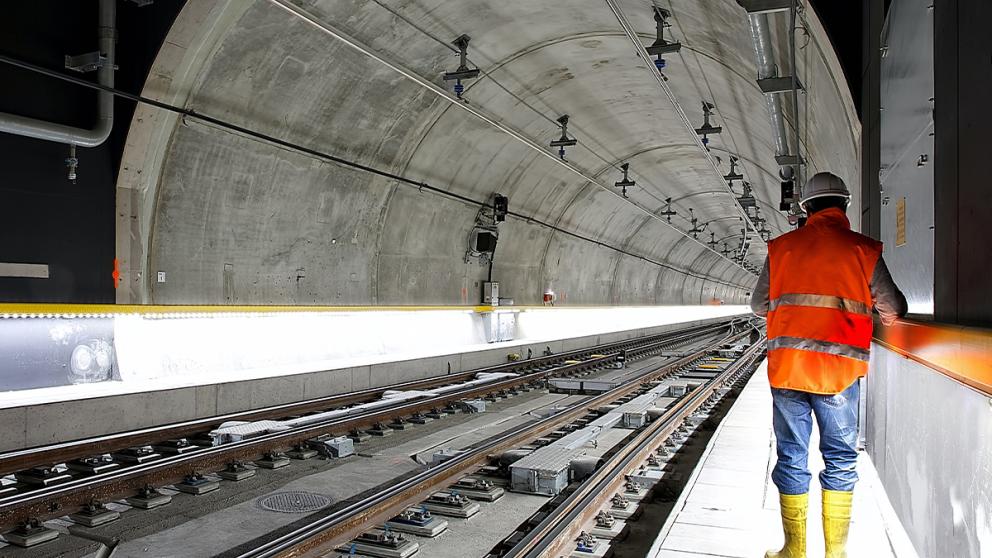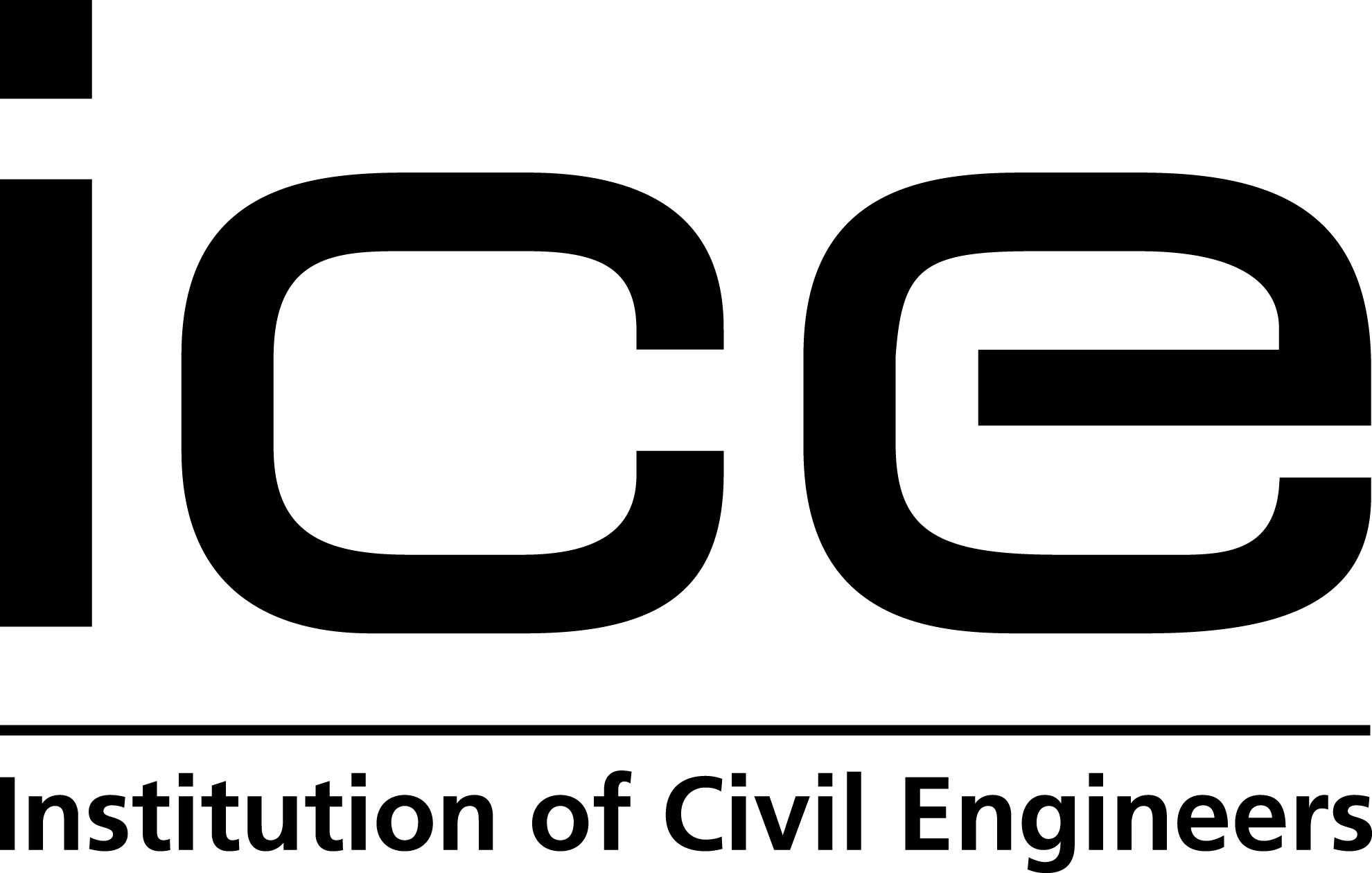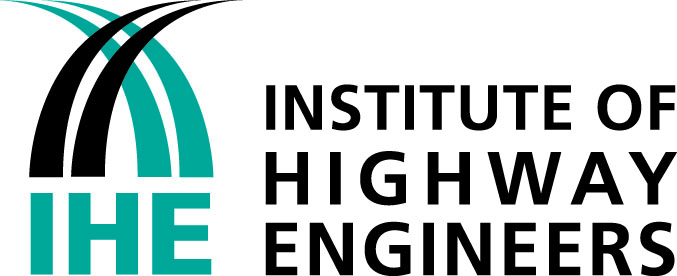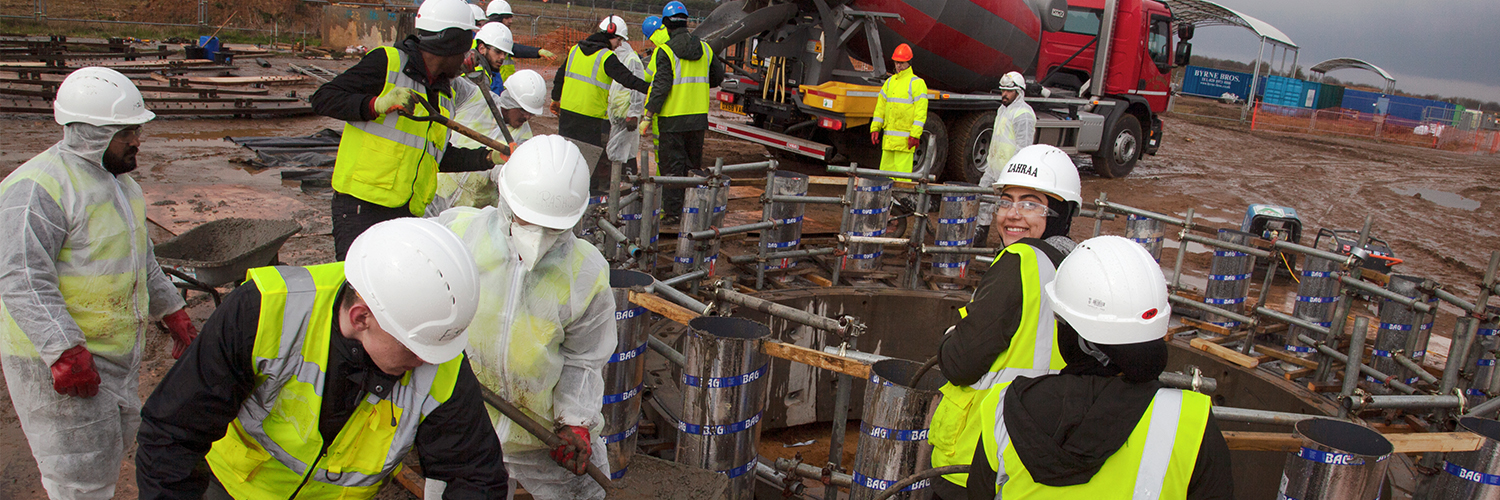
Civil Engineering
Full-time
With placement
Three year
Four year
September 2026
In a nutshell
Civil engineers create, improve and protect the infrastructure that supports everyday life. Gain the skills to successfully plan, manage and implement major engineering projects, and open up exciting career opportunities, with a civil engineering degree.
Designed around real-world problem solving, and delivered from our new £65 million engineering hub, our accredited BEng pathway builds your knowledge to an advanced level. Initially focusing on structures, surveying and project planning, you will progress to study water resources, geotechnics and seismic engineering.
With a focus on your future, you will also develop transferable skills and learn about the decision-making methods used by industry. You also have the option to include an industry placement year, where you can gain additional workplace skills and boost your employability once you graduate.
Want to take your studies further? Take a look at our integrated masters MEng pathway.
Start your study journey
Register for our next Open Day to learn more about studying Civil Engineering, explore our facilities and meet the course team
You will:
- Acquire the engineering skills to design simple structural steel, analyse statically indeterminate structures and design complex structures using reinforced concrete
- Identify and manage environmental issues and associated risks relating to civil engineering, including water, transport, landscape, heritage and biodiversity
- Build knowledge about materials and their fundamental behaviour, including geology, soil mechanics and laboratory testing
- Develop your knowledge of materials and their fundamental behaviour, from laboratory testing of soils, to 3D printing composite structures
- Gain practical experience using industry standard software, so you're ready to join the industry when you graduate
options available
students accepted
Course accreditations




This is for you if...
You're fascinated by infrastructure, and want to contribute to society in a positive way
You're a creative problem-solver and enjoy using technology to find solutions
You studied mathematics or physics at school/college and want a career in a practical engineering environment
All about the course
Course delivery
Delivered over three years - or four if you choose to include an industry placement, you will study a suite of modules designed to embed theoretical knowledge, build career-focused skills and help you become a world-class engineer.
In year one, you will build a strong foundation of knowledge in civil engineering, exploring various topics, as you progress into year two, you’ll expand your subject knowledge and assess the role of the civil engineer in industry. By year three, you’ll study further advanced modules and commence your research project.
Learn more about the current course modules below.
Learning experience
Located at the heart of the property and construction market, Salford is a great place to study civil engineering. We take advantage of our amazing location at the heart of Greater Manchester to visit nearby world-famous civil engineering projects, such as the first ever canal and passenger railway line which means we have strong industry links.
Collaboration is core to our values, so we strive to embed this throughout your studies so that you gain practical context to your studies. You will experience group projects that will build your confidence and capabilities in team working, problem-solving and communication - all desirable skills for real-world engineering careers.
Led by our award-winning civil engineering team, our courses are designed to equip you with the knowledge and skills to create the future infrastructure, buildings and facilities that improve our quality of life. You’ll also have access to a stimulating range of external guest lectures, placements and experience Constructionarium – an unmissable, week-long practical field course that brings your classroom learning to life.
Read about student Marukh's study experience at the university.
Industry placement
On this course, you will have the option to take an industry placement year between years two and three. Although you will be responsible for securing your placement, our tutors will support you in finding a role, and monitor your progress throughout.
Industry placements are an excellent way to enhance your CV, gain hands-on work experience and build industry connections. We often find that placement students achieve higher final year grades.
Read about Adil's industry placement at local company MGF.
Civil Engineering Mathematics 1
An understanding and ability to use mathematics are essential skills for success in engineering. This module will review and expand on the following subjects: algebra, trigonometry, functions, geometry, vectors, complex numbers and calculus, with emphasis on their applications to engineering.
Civil Engineering Materials and Geology
Civil engineering employs the use of a wide range of materials, in this module you will develop your understanding of those materials and study their fundamental behaviour. Subjects include construction materials, geology, soil mechanics and laboratory testing.
Civil Engineering Construction
There are a broad spectrum of elements involved with civil engineering construction. This module will develop your understanding of those elements from effective engineering construction techniques to contract law. Subjects include site safety, sustainability, resource efficiency, consulting engineers and contractors, client's requirement and financial planning and control.
Civil Engineering Surveying
You will develop your understanding and ability to undertake a range of civil engineering surveying tasks, such as setting out, land surveying and quantity surveying. The main subject areas are land surveying techniques, setting out techniques, modern surveying techniques and quantity surveying. You will cover subjects and learn techniques such as setting up a level, theodolite and total station, construction lasers, GPS, EDM, co-ordinates, bearings and contract pricing.
Civil Engineering Communication
As a successful civil engineer it is important to have a wide range of well developed communications skills allowing you to communicate effectively not only with other engineers but also clients, contractors and labourers. This module will develop your drawing, written reports and presentation skills.
Structures E1
You will develop an ability to analyses statically determinate structures and design simple structural steel work elements in this module. The module content is split into analysis and design. Analysis includes the subjects rigid body statics, material properties and Euler theory. Design subjects include design of structural steelwork elements in simple construction, and fire and corrosion protection systems for structural steelwork.
Civil Engineering Mathematics 2
This module will build on the engineering mathematics module in year one and develop more advanced knowledge and skills in mathematical analysis, to enable you to tackle more advanced engineering problems. Subjects covered include partial differentiation, determinants and matrices, vector analysis, Laplace transforms and functions of a complex variable.
Soil Mechanics E2
All structures are dependent on the ground they're built on, in this module you will be introduced to the principles of soil mechanics including the general behaviour of different soil types under loading and unloading conditions and how this behaviour may be predicted. Subjects include geotechnical investigation, soil strength and transient groundwater flow.
Structures E2
The module builds on your structural analysis knowledge from year 1 and develops it to consider simple statically determinate structures. On the design side Reinforced concrete structures are considered in detail. The design of slabs, beams, columns and foundations are looked at. Overall stability of RC structures is also described.
Design and Construction Management
Project planning and execution are a vital part of the role of a civil engineer. In this module you practice these skills, culminating in a residential field course which will see you working in a team to construct structures from bridges to oil rigs.
Highway design and analysis
Our highways are crucial to our lives, whether that be economic or recreational. In this module you will learn the principles which underlie current UK practice in highway design and construction and analysis, including the application of statistical techniques to transport engineering problems.
Fluid Mechanics E2
You will develop an understanding of civil engineering hydraulics concentrating on flow in pipelines. The subjects covered include fluid properties, hydrostatics, fluid dynamics, flow in pipes, Reynolds experiments, pipe systems and networks, and water distribution systems.
Geotechnical Engineering E3
You will learn to develop approaches to the design and analysis of soil slopes and foundations. The subjects include stability of embankments, stability of earth dams, stability of shallow foundations on fine and coarse grained soils, design based on in situ tests and stability of deep foundations in fine and coarse grained soils.
Water Resources E3
You will develop your understanding of sediment transport, wave theory, pressure transients in closed systems and hydrological science. The subjects covered include surface water hydrology, open channel flow, steady non-uniform flow, hydraulic structures, water waves, and hydraulic models.
Structures E3
The module will introduce hand methods for the calculation of the elastic and plastic behaviour of frameworks, through moment distribution, stiffness methods and virtual work. Computer software will be used in tandem to numerically model structures, with an emphasis on validation. This will lead onto design to Eurocodes for more advanced topics in steel and reinforced concrete.
Case Studies in Environmental Engineering
You will develop the ability to identify and deal with environmental issues relating to civil engineering, through a series of case studies. The subjects include environmental risks associated with ground engineering and water resources, transport and the environment, landscape, heritage, and biodiversity impacts, and engineering solutions.
Individual Project
One of the most important parts of your preparation for your future career, whether in industry or research, is the undertaking of an individual project. Projects are based on particular civil engineering themes of industrial relevance.
Professional Applications of Civil Engineering
This module brings together all the discipline-specific civil engineering learning undertaken at previous levels of study and frames the prior learning within the context of a computer-based technical project. To reinforce the link to industry, the learning at prior levels is also contextualised by providing a portfolio of evidential details of a real-life project through researching a real-life project. The assessments are aligned with the Institution of Civil Engineers criteria for incorporated Engineer status.
We take a flexible approach to our course delivery that promotes diversity and inclusivity and provides a blended learning experience, which will vary to meet specific programme requirements. This learning time includes formal lectures and interactive activities such as seminars, tutorials, practical sessions, laboratory and studio learning. Smaller classes may be used to support collaborative activities such as project and group work and presentations. A range of different assessments and feedback is offered to meet the needs of both our diverse student body and specific subject needs.
Our undergraduate courses are normally made up of 20 credit modules which are equal to 200 hours of learning time. A three-year degree qualification typically comprises a total of 360 credits (120 credits per year).
Please note that exact modules and content offered may vary in order to keep content current and, for courses that offer optional modules, may depend on the number of students selecting particular options. When accepting your offer of a place to study on a programme with optional modules, you should be aware that optional modules may not all run each year. Your tutor will be able to advise you as to the available options on or before the start of the programme. Whilst the University tries to ensure that you can undertake your preferred options, it cannot guarantee this.
Frequently asked questions
What does a civil engineer do?
Civil engineers are focused on the design, construction, and maintenance of physical structures, particularly public works such as roads and bridges.
Is civil engineering a good career?
Yes, civil engineering can be a good career choice. It offers a variety of opportunities, strong job prospects, and the potential for a good salary. The field allows for specialization in areas like structural, transportation, or geotechnical engineering. Civil engineers contribute to public safety and sustainability by designing and managing infrastructure projects.
Is civil engineering hard?
Civil engineering is generally considered a challenging and demanding field that requires a strong foundation in mathematics, science, and technology. While not necessarily the most physically demanding job, it does require significant intellectual effort and dedication.
Are civil engineers well paid?
Civil engineering can be a very financially rewarding field. A graduate civil engineer could expect a salary of around £30,000.
Is civil engineering stressful?
Civil engineering could be considered a challenging field due to the size and breadth of construction projects. However, our students find our programmes incredibly rewarding when gaining a wide range of skills during their studies and getting to work on exciting new projects.
There are methods to ensure you’re getting the best of your degree, including practicing good time management and making time for yourself to recharge. If you find your studies overwhelming, there will be support available from your lecturers and university support staff.
School of Science, Engineering and Environment
Rising to the challenge of a changing world, our degree courses are designed to shape the next generation of urbanists, scientists, engineers and industry leaders.
Driven by industry, and delivered by supportive programme teams, you can develop the knowledge and skills to become unstoppable in your career.
Facilities
As a civil engineering student, you will be based in laboratories that keep teaching and learning apace with cutting-edge innovation and discovery.
In our Heavy Structures Laboratory you can load test almost any structure using our hydraulic actuators, strong floor, tensile and compression testing machines and climactic cabinet.
In our Hydraulics Laboratory, you can explore how water flows and behaves at different velocities. Our Water Quality Laboratory is linked to our plant growing (hydroponics) facility, where you can investigate the ability of different plants and filters to remove groundwater contaminants.
In the Geotechnics Laboratory, you can learn about soil types, their strengths, permeability and compressibility and how these things can affect the ground conditions under building foundations, dams and embankments.
You will also learn to use a range of surveying equipment and tools, such as digital total stations, levels and theodolites, which combined with digital drawing capability. will equip you with skills demanded by employers.
Visit the Maker Space
The Maker Space was established in partnership with Salford-based Morson Group, a world-leading engineering recruitment company.
Together we take an active role in addressing the STEM shortages by inspiring young people and our students to consider a future career in STEM by learning real-world digital fabrication skills in their studies.
What about after uni?
Employment
By gaining the knowledge and skills to successfully plan, manage and implement major civil engineering projects, you can open up some exciting career opportunities.
There is huge demand for civil engineers, both in the UK and worldwide. You may choose to focus your career in the built environment and construction industries, or you may prefer to work in transport, utilities or information technology sectors, or even the armed forces.
Typically, civil engineering graduates focus their skills in structural design, or infrastructure consultancy. Graduate schemes with large engineering films often provide a platform for career progression and specialism. Today, you’ll find our alumni working at leading companies including WSP and Roger Bullivant.
Further study
You might find you want to learn more about civil engineering. Building on our expertise, we offer a range of postgraduate courses that can take your interests and career opportunities further. Salford graduates and alumni will also receive a generous fees discount.
What You Need To Know
Applicant profile
We are looking for applicants who want a career in civil engineering. Good interpersonal skills, attention to detail and a strong work ethic are desirable characteristics. You should have a good understanding of linking theory to real-world application.
English language requirements
All of our courses are taught and assessed in English. If English is not your first language, you must meet our minimum English language entry requirements. An IELTS score of 6.0 (no element below 5.5) is proof of this, and we also accept a range of equivalent qualifications.
Read more about our English language requirements, including information about pathways that can help you gain entry on to our degree courses. If you do not have the English language requirements, you could take our Pre-Sessional English course, or the International Foundation Year to gain entry onto this degree.
Course accreditation
This degree is accredited by the Joint Board of Moderators (JBM) comprising the Institution of Civil Engineers, Institution of Structural Engineers, Institute of Highway Engineers, the Chartered Institution of Highways and Transportation and the Permanent Way Institution on behalf of the Engineering Council as:
- Fully satisfying the educational base for an Incorporated Engineer (IEng).
- Partially satisfying the educational base for a Chartered Engineer (CEng).
A programme of accredited Further Learning will be required to complete the educational base for CEng. Visit JBM for further information and details of Further Learning programmes for CEng.
GCSE
In addition to Level 3 requirements, you must have evidence of Level 2 GCSE English and Maths at Grade C/4 or above.
UCAS tariff points
104-112 UCAS points.
A level
104-112 tariff points. Two full A-levels required as a minimum, to include Grade C in Maths and an E in a Numerate Science (Physics, Chemistry, Electronics, Design Technology, Computer Science, Statistics).
BTEC National Diploma
Grade DMM required from Engineering or Applied Science. Not accepted: Electrical Engineering, Aviation Operations
T Level
T Levels accepted at Grade M. Must be in one of the following subjects: 1. Building Services Engineering for Construction 2. Refer to tutor Design, Surveying and Planning for Construction
Access to HE
Must be in a QAA approved Engineering or Science subject. Other subjects considered on a case-by-case basis.
Scottish Highers
Two Scottish Higher Levels required, including Maths and a Numerate Science.
Irish Leaving Certificate
Two Higher Levels required, including Maths and a Numerate Science.
International Baccalaureate
30 points overall, including Grade 5 in Higher Level Maths and Physics (or a numerate Science). Must have passed the full International Baccalaureate to be considered.
International students
We accept qualifications from all around the world. Find your country to see a full list of entry requirements. If you do not have the English language requirements, you could take the International Foundation Year to gain entry onto this degree.
Salford Alternative Entry Scheme (SAES)
We positively welcome applications from students who may not meet the stated entry criteria but who can demonstrate their ability to pursue the course successfully. Once we receive your application, we'll assess it and recommend it for SAES if you are an eligible candidate.
There are two different routes through the Salford Alternative Entry Scheme and applicants will be directed to the one appropriate for their course. Assessment will either be through a review of prior learning or through a formal test.
To be considered for the Salford Alternative Entry Scheme you must have already achieved or be working towards GCSE Maths and English Grade C/4 (or equivalent).
Please contact Admissions for further information.
How Much?
| Type of study | Year | Fees |
|---|---|---|
| Full-time home | 2026/27 | £9,790 per year |
| Full-time international | 2026/27 | £18,120 per year |
Tuition fees will increase in the second and each subsequent year of your course by the rate of inflation, subject to the maximum fee limits set out by the UK Government.
Additional costs
You should consider further costs which may include books, stationery, printing, binding and general subsistence on trips and visits.
International student scholarships
If you are a high-achieving international student, you may be eligible for one of our scholarships.
Learn more about our latest international scholarships.
All set? Let's apply
Enrolment dates
Student information
Terms and conditionsUCAS information
Course ID H200
Institution S03



